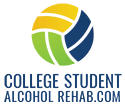Alcohol Test Detection Time by Type
Alcohol does not remain detectable in the body for long, and its detectability varies depending on the type of test. Note: the following timelines are approximate and vary widely from person to person.
Alcohol Saliva Test
Alcohol can be detected in saliva for up to 12 hours.
Blood Alcohol Test
Alcohol is found in blood up to 24 hours after consumption.
Does Alcohol Show Up in a Hair Follicle Test?
Alcohol does show up in hair follicle tests. In fact, this is one of the longest-lasting ways to detect if someone has had a drink: up to 48 hours.
Alcohol Urine Test
Alcohol is detectable in urine for up to 80 hours after stopping drinking.
What Influences Alcohol Detection Time?
The above alcohol detection tests are highly dependent on factors specific to each individual’s body. These factors include:
- Age – Older individuals have livers that work slightly slower than younger people, meaning they retain detectable alcohol in their systems longer.
- Body Mass Index (BMI) – The higher your body fat, the more alcohol is retained.
- Sex – On average, women have a higher body fat percentage than men. This means women typically have longer alcohol retention rates.
- Food and Liquid Intake – While having food in your stomach before drinking is known to slow the uptake of alcohol, it also slows how quickly it is processed in your body, making detection times longer.
- Liver Function and Health – A healthy liver processes alcohol more quickly.
- Metabolism – The more efficient your body’s metabolism is, the more quickly it processes things you’ve consumed (including alcohol).
- Amount of Alcohol Consumed – The more you drink, the longer it takes your body to process the amount of alcohol you consumed.
- How Often You Drink – The frequency of drinking can also have an impact on how long alcohol is detectable in your system.
Alcohol Addiction Treatment
If you or a loved one can’t stop drinking even when you have to pass an alcohol test, you may need to seek professional help with an alcohol addiction treatment program. Getting sober alone is difficult and potentially deadly. Overall, alcohol addiction treatment for adolescents is essential for addressing the complex physical, psychological, and social factors involved in addiction and supporting young individuals in achieving long-term recovery and well-being. For residents of New Jersey and the surrounding areas, you can access proven alcohol rehab for help.
